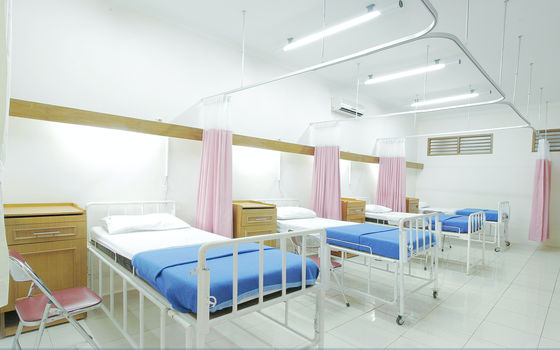Medical institutions affected by ransomware have released reports that patient mortality rate will increase and care will be delayed

Cybersecurity firms Censinet and Ponemon Institute have published a report on ransomware attacks experienced by healthcare organizations over the last two years. According to the report, a quarter of medical institutions that experienced ransomware attacks 'increased patient mortality as a result of the attack.'
New Ponemon Institute Research Shows Ransomware Attacks on Healthcare Delivery Organizations Can Lead to Increased Mortality Rate --Censinet

SC Media | Report: Ransomware is a patient mortality risk, driven by COVID, third-party vendors
https://www.scmagazine.com/analysis/ransomware/report-ransomware-is-a-patient-mortality-risk-driven-by-covid-third-party-vendors
Hospitals say cyberattacks increase death rates and delay patient care --The Verge
https://www.theverge.com/2021/9/27/22696097/hospital-ransomware-cyberattack-death-rates-patients
Published research reports on medical institutions and ransomware attacks reveal that cyberattacks pose significant risks not only to the economy and logistic, but also to the medical community. 'Ransomware has a significant impact on patient care,' said Ed Gaudet, CEO of Censinet, noting the magnitude of the medical impact of cyberattacks.
A survey conducted by Censinet and the Ponemon Institute conducted a survey of nearly 600 medical institutions across the United States, from regional medical centers to medical device manufacturers. The report reveals that over 40% of the institutions surveyed have been victims of ransomware attacks over the past two years. The ransomware attack in this survey refers to a 'cyber attack that freezes a computer system and demands payment of money to unlock it.'
Approximately 70% of institutions involved in ransomware attacks said, 'Cyber attacks have led to extended hospital stays and delays in examinations,' and 36% said, 'Medical procedures have increased complications,' 22%. Responded that 'the mortality rate has increased'.

Regarding these figures, the overseas media The Verge said, 'The number of medical institutions surveyed was relatively small, and we did not reconfirm the answers from the organization in the questionnaire survey. The survey did not ask medical institutions to explain why they responded, for example, it is unclear how the institutions that responded that the mortality rate increased measured the change. '.
So it's probably premature to say confidently that the ransomware attack had a negative impact on healthcare institutions, CEO Gaudet said. We need to ensure that the industry doesn't overreact to the results of this report. There is. ' But 'it's clear that we need to pay attention to our data, even if the impact of a ransomware attack is only a few percent,' he said, adding that medical institutions are at risk of cyberattacks in the medical field. It is necessary to publicize the fact that serious effects are beginning to occur.
In addition, more than half of the medical institutions that responded to this survey said they were 'not sure that their organizations were properly addressing the risk of ransomware attacks.'
People working in the healthcare sector have historically hesitated to say that ransomware attacks are harmful to patients. This is partly due to the fact that few efforts have been made to quantitatively investigate the relationship between cyberattacks and patient health. Also, if a ransomware attack affects patients, it is quite possible that the hospital's reputation will be damaged. That's why CEO Gaudet said, 'As an industry, I don't think we wanted to know the answer to this survey.'
Cyber attacks on medical institutions have increased over the past year and require further investigation of this issue. A new analysis by the U.S. Cyber Security Infrastructure Security Agency (CISA) found that bed utilization exceeded 100% in hospitals in Vermont affected by ransomware attacks during the pandemic of the new coronavirus. It has been reported.
It is reported that the ransomware attack has begun to focus not only on the threat of large companies but also on 'people's daily lives' such as food and medical care --GIGAZINE

Related Posts:







